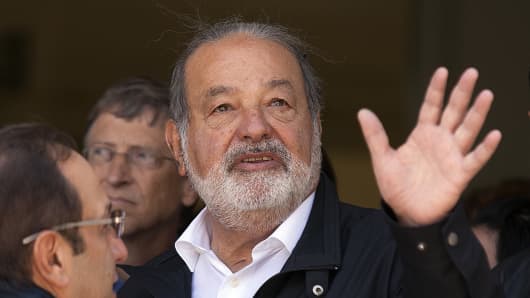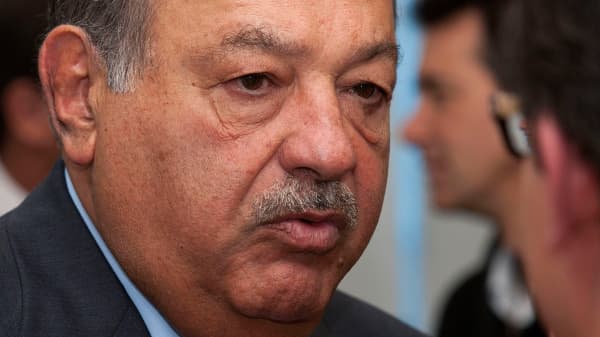Some might question the wisdom of a developing world conglomerate of investing in a struggling European company. In the second quarter of 2013, KPN's revenue fell 8.1 percent year-on-year to 2.9 billion euros ($3.9 billion). Roughly one-third of revenue came from KPN's German business, where revenue also fell on the previous year, albeit by a smaller 4.6 percent.
However, McHugh said that Slim's bid made sense if one took a bullish view on the Europe over a long-term horizon.
"The telecoms sector in Europe has been an awful sector for the past four or five years and, valuations are near all-time lows. At the same time, you have got huge macro headwinds…European stocks are really undervalued on a long-term horizon, on a five or six year horizon. Buying these stocks at these levels makes a lot of sense if you believe in a longer-term macro turn around in Europe. And that is his game, a really long-term uplift in Germany, which will see consolidation from four operators to three operators and that could create a lot of value for him," McHugh said.
KPN shares rocketed on the news of America Movil's bid on Friday, trading 16 percent higher on the day at 2.32 euros. The bid of bid 2.4 euros ($3.21) per share in cash for the rest of KPN is at a premium of about 35 percent over the average closing price of KPN's shares for the last 30 trading days.
The European telecoms sector as a whole was also boosted, trading around 1.40 percent higher.
However, Jefferies placed KPN stock on hold after the announcement, with a price target of 1.93 euros. The brokerage flagged regulatory uncertainties about the deal and questioned whether control of KPN by closely-held AMX could be politically contentious.
Slim's bid is part of a wider trend in mergers and acquisitions.
In terms of deal numbers, 2013 has been the least active year for European M&A (mergers and acquisitions) activity since 2004, according to Dealogic. So far, there have been 6,565 M&A deals this year, a 25 percent decline on the same period in 2012. Volumes have been more promising however, standing at $478 billion, a 10 percent increase on same period last year.
But telecoms and finance have led activity this year, with the telecoms sector providing two of the three biggest deals so far this year — Liberty Global's $25.1 billion acquisition of Virgin Media and Vodafone's $14.0 billion acquisition of Kabel Deutschland Holding.
Credit Suisse analysts were optimistic in a research note last month, saying the European M&A markets showed "signs of life".
"While M&A has been a consistent and improving theme in the U.S. through 2012 and 2013, we have only seen fits and starts in Europe. This is consistent with an environment of weak corporate spending and economic confidence more generally," they said.
"However, M&A is now showing signs of life... An improving cycle and accompanying corporate spending should support a stronger trend."





